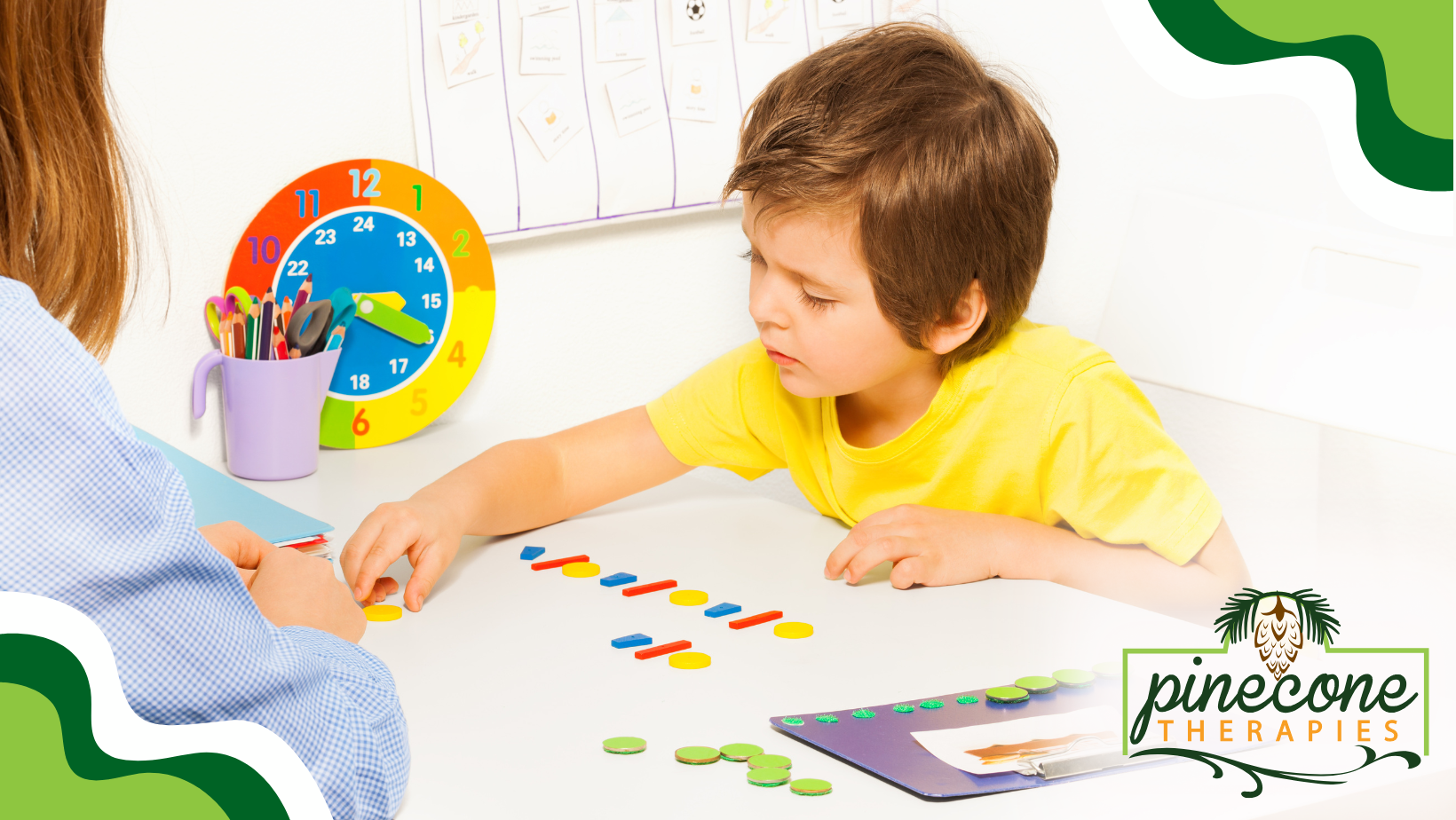As a parent, you know your child best. If you’ve noticed signs that your toddler’s development feels different—whether it’s in speech, play, or how they interact with others—trust your instincts. At Pine Cone Therapies, we encourage families to seek answers early. An autism evaluation for toddlers can be a life-changing step toward getting your child the support they need to thrive.
Why Early Autism Screening Matters
Many parents wonder if it’s “too soon” to be concerned or fear they’re overreacting. But research shows that autism can be identified as early as 18 months, and the earlier a child receives intervention, the greater their progress in communication, social skills, and daily functioning.
At Pine Cone Therapies, we provide ABA therapy, speech therapy, occupational therapy, and referrals for virtual autism testing—all grounded in early, evidence-based, neuro-affirming care.
What Is Autism Spectrum Disorder (ASD)?
Autism spectrum disorder (ASD) is a developmental condition that affects communication, social interaction, and behavior. Each child with autism presents differently—some may be verbal, others nonverbal; some may enjoy sensory input, while others are easily overwhelmed by it.
This wide range of characteristics is why the word "spectrum" is used—and why professional diagnosis is so important. At Pine Cone Therapies, we work closely with psychologists and pediatricians to connect families to accurate diagnoses and individualized therapy services.
Early Signs of Autism in Toddlers
Here are some common early signs of autism in children ages 1 to 4:
Communication Differences:
- Limited or delayed speech
- Not following simple directions
- Repetitive use of words or phrases
- Lack of pointing or gesture use
Social Interaction Challenges:
- Avoids eye contact
- Doesn’t respond to their name
- Prefers playing alone
- Difficulty with games like peek-a-boo
Behavioral Patterns:
- Repetitive movements (rocking, spinning)
- Strong interest in specific objects
- Trouble with routine changes
Sensory Sensitivities:
- Overreaction to sounds, lights, or textures
- Seeks or avoids sensory input
- Unusual pain tolerance
Every child is different. Seeing a few of these signs doesn’t guarantee an autism diagnosis—but if you notice multiple patterns, an early autism screening can offer clarity and peace of mind.
The Power of Early Autism Diagnosis
Why Timing Is Critical
The toddler years are a time of rapid brain development. When autism is identified early, therapy can begin during the most flexible and formative stage of brain growth—increasing the likelihood of positive, long-term outcomes.
At Pine Cone Therapies, we work with toddlers as young as 18 months to build foundational skills in communication, behavior, and social development.
What Happens During an Autism Evaluation?
A diagnostic evaluation typically includes:
- Developmental history: Review of milestones like speech, motor skills, and social behavior.
- Parent interview: Your insights help shape the full picture of your child’s development.
- Structured observations: Professionals observe how your child plays, interacts, and communicates.
- Standardized assessments: Tools like the ADOS-2 help identify signs of ASD.
These evaluations are often performed by psychologists, neuropsychologists, or developmental pediatricians—and Pine Cone Therapies can help connect you to trusted providers offering virtual or in-person testing options.
Autism Screening Tools Used
One of the most widely used tools for diagnosing autism in toddlers is the Autism Diagnostic Observation Schedule (ADOS-2). Screenings typically involve play-based tasks that feel natural for your child but provide clinicians with important insights into communication, social skills, and behavior.
When to Seek an Autism Evaluation
You should consider scheduling a developmental screening or autism evaluation if your child:
- Isn’t speaking single words by 16 months
- Doesn’t respond to their name
- Loses previously acquired skills
- Struggles with transitions or routines
- Engages in repetitive or unusual behaviors
- Avoids eye contact or social engagement
- Displays extreme sensory reactions
If your child’s pediatrician, therapist, or teacher has raised concerns—or if you simply feel something isn’t typical—it’s worth seeking an evaluation. Early action can lead to early support.
How Pine Cone Therapies Can Help
At Pine Cone Therapies, we specialize in early intervention for autism and related developmental differences. Our therapy centers in Southlake, Keller, and Missouri City, Texas offer a full range of services, including:
- Applied Behavior Analysis (ABA)
Individualized programs that support communication, daily living, and behavior regulation. - Speech Therapy
Helping children express their wants, needs, and emotions in age-appropriate ways. - Occupational Therapy
Building skills for play, self-care, attention, and sensory processing. - Autism Testing Referrals
Quick access to diagnostic providers who specialize in toddler evaluations.
We prioritize immediate availability—no long waitlists—and always take a neuro-affirming, assent-based approach to care.
Trust Your Instincts—Take the Next Step
As a caregiver, your observations are powerful. If you notice signs that your toddler might benefit from an autism evaluation, you're not alone—and it's not too early to seek support.
At Pine Cone Therapies, we believe early identification leads to early success. Whether your child receives an autism diagnosis or not, you’ll gain valuable insights and a clearer path forward.
Ready to Get Started?
Contact Pine Cone Therapies to learn more about:
- Early autism evaluation referrals
- Immediate availability for ABA and therapy services
- How to create a personalized care plan for your toddler
📍 Serving families in Southlake, Keller, and Missouri City, TX

.png)






